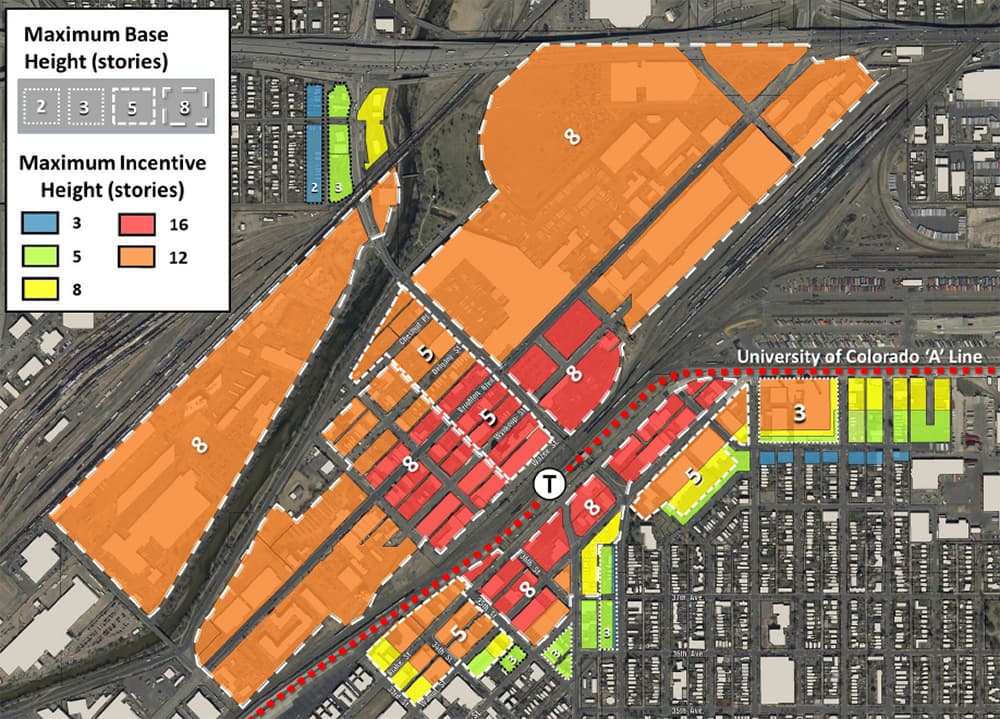
The Denver City Council voted unanimously Monday to allow tall buildings around the 38th and Blake station of the A Line and even taller buildings if developers make some of the units affordable. It's the first time the city has approved a land use policy that offers more density in exchange for affordability.
The height amendments call for taller buildings near the station and along Brighton Boulevard and three- to five-story buildings closer to existing residential areas in the Cole and Globeville neighborhoods. This is part of the city's ongoing strategy to allow more density near train stations.
What's different about 38th and Blake is that the plan would allow developers to build even higher -- up to 16 stories in some areas instead of eight -- if they make a certain percentage of the units affordable.

How much of the project would have to be affordable -- and affordable for whom -- still needs to be worked out. So does a set of design guidelines that planners say will prevent the area from turning into man-made canyons.
Both of those issues will get hashed out in the coming months and brought back to City Council.
But Councilman Albus Brooks said the city believes the height incentive is enough for the city to require even rental units to be affordable.
That had been one of the questions about this plan. Would the affordable units include rental or would it be limited to for-sale condo units, as happened with the city's inclusionary housing ordinance?
Colorado law prohibits rent control. There usually needs to be taxpayer money in a project for the city to put a deed-restriction on a rental unit to keep it more affordable.
The Denver City Council just approved a new set of taxes and fees to generate $15 million a year to provide a lot more of those subsidies for affordable housing.
The affordable units at 38th and Blake, though, shouldn't require any subsidy because the height bonus is enough of an incentive, Brooks said. A developer can always choose to just forego the bonus and build to the lower height.
If this approach is deemed to have worked in a few years -- the definition of worked always being open to debate -- Denver probably will use it around other RTD stations.











